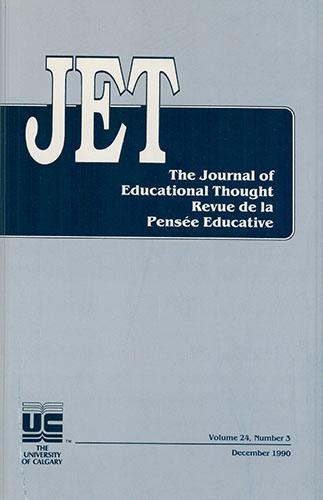La pensee critique en science: presentation d 'un modele iconique en vue d 'une definition operationnelle
DOI:
https://doi.org/10.55016/ojs/jet.v24i3.44286Abstract
In this paper, a critical review of literature is provided and different ways of defining critical thinking in science are explored: A tentative iconic model and an operational definition are proposed in order to stimulate exploratory observations and, eventually, the development of teaching strategies in science taking into account critical thinking. In our model, three main components of critical thinking are identified: the affective component (dispositions), the cognitive component (knowledge, basic skills, high order skills) , and the behavioral component (contextualised or generalised behaviors). The cognitive component is embedded in the affective component which modifies the development as well as the use of critical thinking skills and knowledge. The links between the environment and these critical thinking components are described as well as their mutual influences. This model emphasizes the key role of affectivity in the development and actualization of critical thinking in everyday life as a critical spirit.Downloads
Published
2018-05-16
Issue
Section
Articles
License
The Journal of Educational Thought retains first publication rights for all articles. The Journal grants reproduction rights for noncommercial educational purposes with the provision that full acknowledgement of the work’s source be noted on each copy. The Journal will redirect to the appropriate authors any inquiries for further commercial publication of individual articles. All authors wishing to publish in JET will be asked to fill in and sign a Consent to Publish and Transfer of Copyright agreement.
Authors must affirm that any submission to JET has not been and will not be published or submitted elsewhere while under considration by JET.

